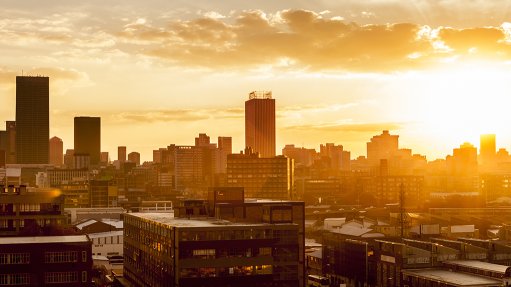The 2023 Rugby World Cup mistake
Impi! wo ‘nans’ impi iyeza, Obani bengathinta amabhubesi?
These opening lyrics of Johnny Clegg and Juluka’s Impi resonates with me, as do images of the Springboks storming past Zulu warriors in traditional dress, with fireworks exploding all around them as they step on to the Kings Park rugby field. The day, August 15, 1998, was also to be the last day that I would watch a test match live with my father.
As has now become the standard narra- tive, New Zealand was superior in all aspects of the game. With 15 minutes remaining, the All Blacks were in what was considered an unassailable 23–5 lead. But, unlike the current practice, what happened next is the stuff of legend, something that simply happens no more – a turnaround triggered by a superb solo effort by Joost van der Westhuizen, which saw the Springboks run out 24–23 victors.
As I reminisce, staring out the window, I hear fireworks, accompanied by colourful flashes that light up the night sky. It is November 5. A special day. On this day in 1605, Robert Catesby and his friends planned to kill the king by blowing up the Palace of Westminster during the State Opening of Parliament. But his name is lost in history in favour of the trigger man who was drafted in to set the fuse. His name is more familiar – Guy Fawkes.
But my interest lies with rugby. By the time you read this column, South Africa might well have been announced as the 2023 Rugby World Cup host nation. An announcement in this regard was expected on November 15. South Africa failed in its previous three attempts – in 2011, 2015 and 2019.
Why does South Africa even contemplate to host the 2023 Rugby World Cup? This country hosted the event in 1995, the Soccer African Cup of Nations in 1996, the Cricket World Cup in 2003, and the Soccer World Cup in 2010. Why do we want to host the rugby tournament for a second time?
Unlike the 1995 Rugby World Cup, which had ‘nation building’ at its heart, the 2023 tournament will achieve anything but that. I fear that it would result in quite the opposite. The most plausible reason is simply that it provides a distraction – a R2.9-billion distraction at the current exchange rate. (This is the South African government’s financial guarantee.) But, in the broad scheme of things, this is mere pocket change and it has the added advantage that provides political currency.
Whereas in 1995 South Africa potentially had a world beating team, in light of the Springboks’ 2017 world ranking, it is quite conceivable that they would not progress past the semifinals. As of October 30, the Springboks are ranked fifth, with Scotland and Wales in hot pursuit.
Do the Springboks have the best coach and are they the best team, with the best players? I fear the answer can be found in two consecutive letters of the alphabet: N–O.
What makes the hosting of the tournament even more surprising is the www.sport24.co.za article of April 29, which reported that the South African Rugby Union (Saru) posted a R23.3-million loss in 2016. The article added that Saru was considering staging home test matches “in a bid to make the national body profitable again”. Mention was also made of rising costs and a R130-million reduction in sponsorship, including the withdrawal of banking group Absa as a major backer of the Springboks.
Since most of what I have seen is not financial or economic reasoning, let us have a look at a simple thing – projected ticket sales. The stated intention is for 2 900 000 tickets to be sold. How does this compare with the 2010 Soccer World Cup? A total of 3 178 856 tickets were sold for 64 games. The 2023 tournament is for 48 games. Adjusted, the figure becomes 2 384 160. Thus, 515 840 more tickets have to be sold than were sold in 2010. To add further perspective to ticket sales at the tournament, in 1995, South Africa sold 1 100 000, in 2003, Australia sold 1 837 547 and, in 2015, England sold 2 477 805.
Perhaps some believe that, ‘if they build the fields, the spectators will come”. Well, the stadiums were built in 2010; so, in theory, only maintenance and little improvement would be required. But where will the spectators come from? From abroad? Why will they? Because the rand is weak? Such a response is devoid of any rationality; it is quite pitiful, in fact. It still costs money to travel to South Africa, a long-haul destination.
The R2.9-billion cost of hosting the 2023 Rugby World Cup must be viewed against the backdrop of a November 5 Fin24 report that stated that “total public debt could be 80% of gross domestic product or higher by 2020/21”. It would not mean ‘spending money to make money’, but, more frighteningly, ‘borrowing money to make money’.
Much is made of South Africa’s transport infrastructure, seemingly without taking into account another Fin24 article – published on June 7 – which reported that nine of South Africa’s State-owned enterprises had debt of close to R700-billion in the 2015/16 financial year, on which they had to pay R51-billion in interest charges. This was divulged in a Parliamentary response citing the liabilities of, among others, Airports Company South Africa, South African Airways, South African National Roads Agency Limited, the Trans-Caledon Tunnel Authority and Transnet. If this is not bad enough, over and above debt, according to Eskom’s 2016/17 annual report, total debt securities and borrowings amounted to R355-billion, bringing the total to about R1.1-trillion. To contextualise, the South African Revenue Service’s revenue collection target for 2017/18 is R1.27-trillion.
South Africa no longer has the luxury to spend money supposedly to make money, for it essentially has to borrow money to make money. Unless you are a gambler, such an action is reckless and irresponsible.
Seventieth Anniversary of the GATT
On October 30, 1947, 23 countries signed the Final Act of the General Agreement on Tariffs and Trade (GATT), which was devised as a temporary agreement that would boost international trade. The GATT regulated world trade for almost 50 years, before being succeeded by the World Trade Organisation on January 1, 1995.
Comments
Press Office
Announcements
What's On
Subscribe to improve your user experience...
Option 1 (equivalent of R125 a month):
Receive a weekly copy of Creamer Media's Engineering News & Mining Weekly magazine
(print copy for those in South Africa and e-magazine for those outside of South Africa)
Receive daily email newsletters
Access to full search results
Access archive of magazine back copies
Access to Projects in Progress
Access to ONE Research Report of your choice in PDF format
Option 2 (equivalent of R375 a month):
All benefits from Option 1
PLUS
Access to Creamer Media's Research Channel Africa for ALL Research Reports, in PDF format, on various industrial and mining sectors
including Electricity; Water; Energy Transition; Hydrogen; Roads, Rail and Ports; Coal; Gold; Platinum; Battery Metals; etc.
Already a subscriber?
Forgotten your password?
Receive weekly copy of Creamer Media's Engineering News & Mining Weekly magazine (print copy for those in South Africa and e-magazine for those outside of South Africa)
➕
Recieve daily email newsletters
➕
Access to full search results
➕
Access archive of magazine back copies
➕
Access to Projects in Progress
➕
Access to ONE Research Report of your choice in PDF format
RESEARCH CHANNEL AFRICA
R4500 (equivalent of R375 a month)
SUBSCRIBEAll benefits from Option 1
➕
Access to Creamer Media's Research Channel Africa for ALL Research Reports on various industrial and mining sectors, in PDF format, including on:
Electricity
➕
Water
➕
Energy Transition
➕
Hydrogen
➕
Roads, Rail and Ports
➕
Coal
➕
Gold
➕
Platinum
➕
Battery Metals
➕
etc.
Receive all benefits from Option 1 or Option 2 delivered to numerous people at your company
➕
Multiple User names and Passwords for simultaneous log-ins
➕
Intranet integration access to all in your organisation
















